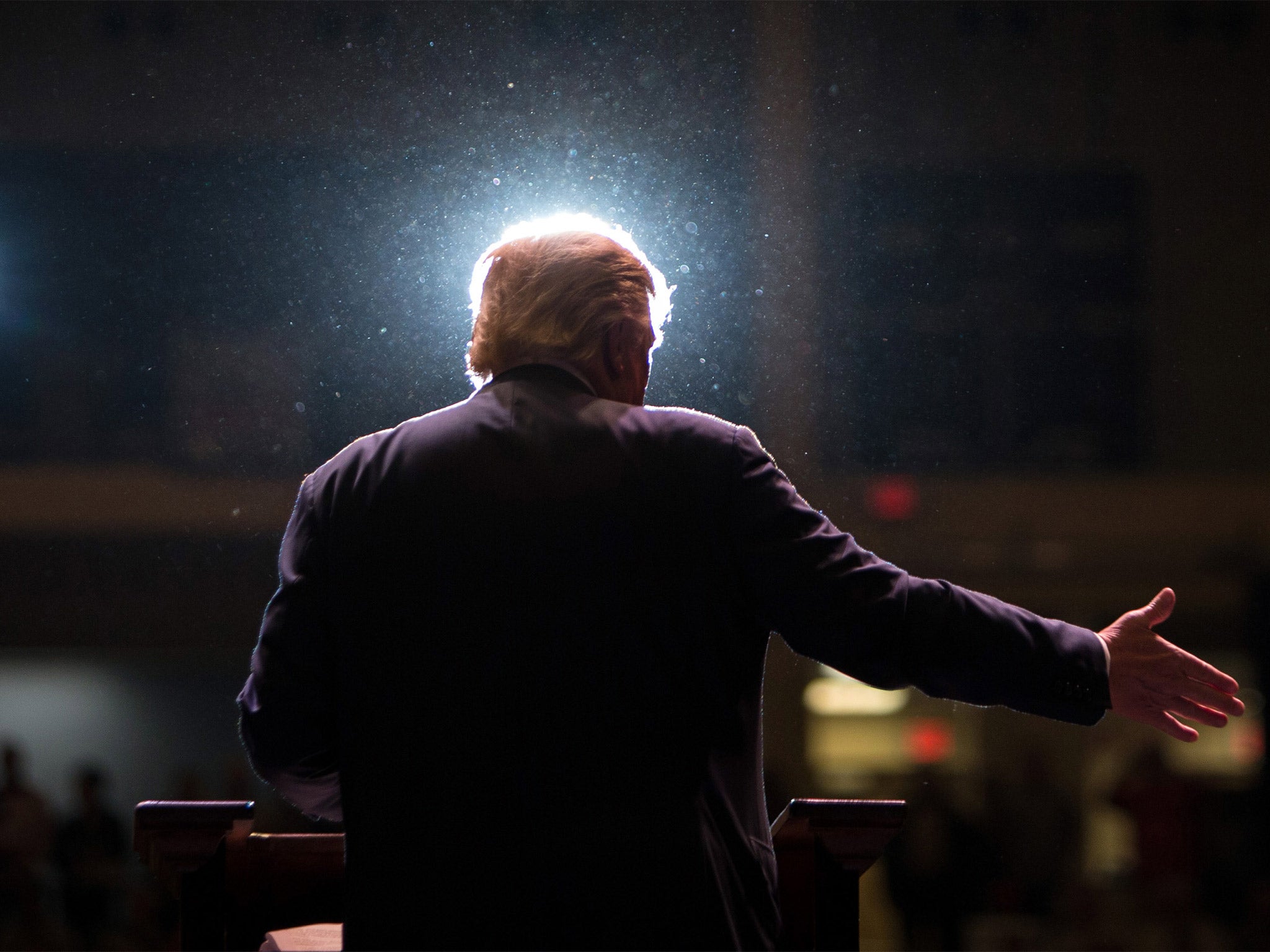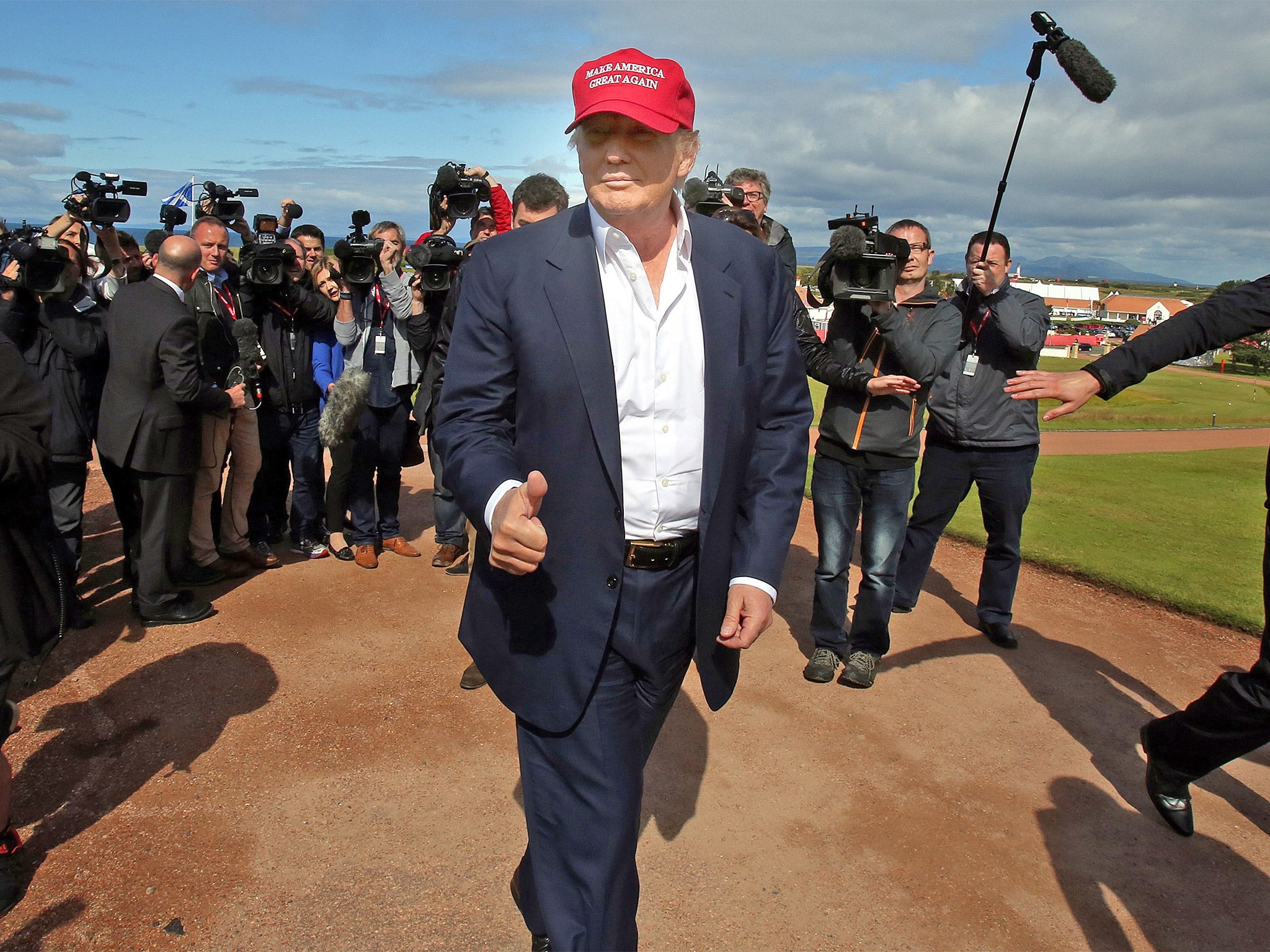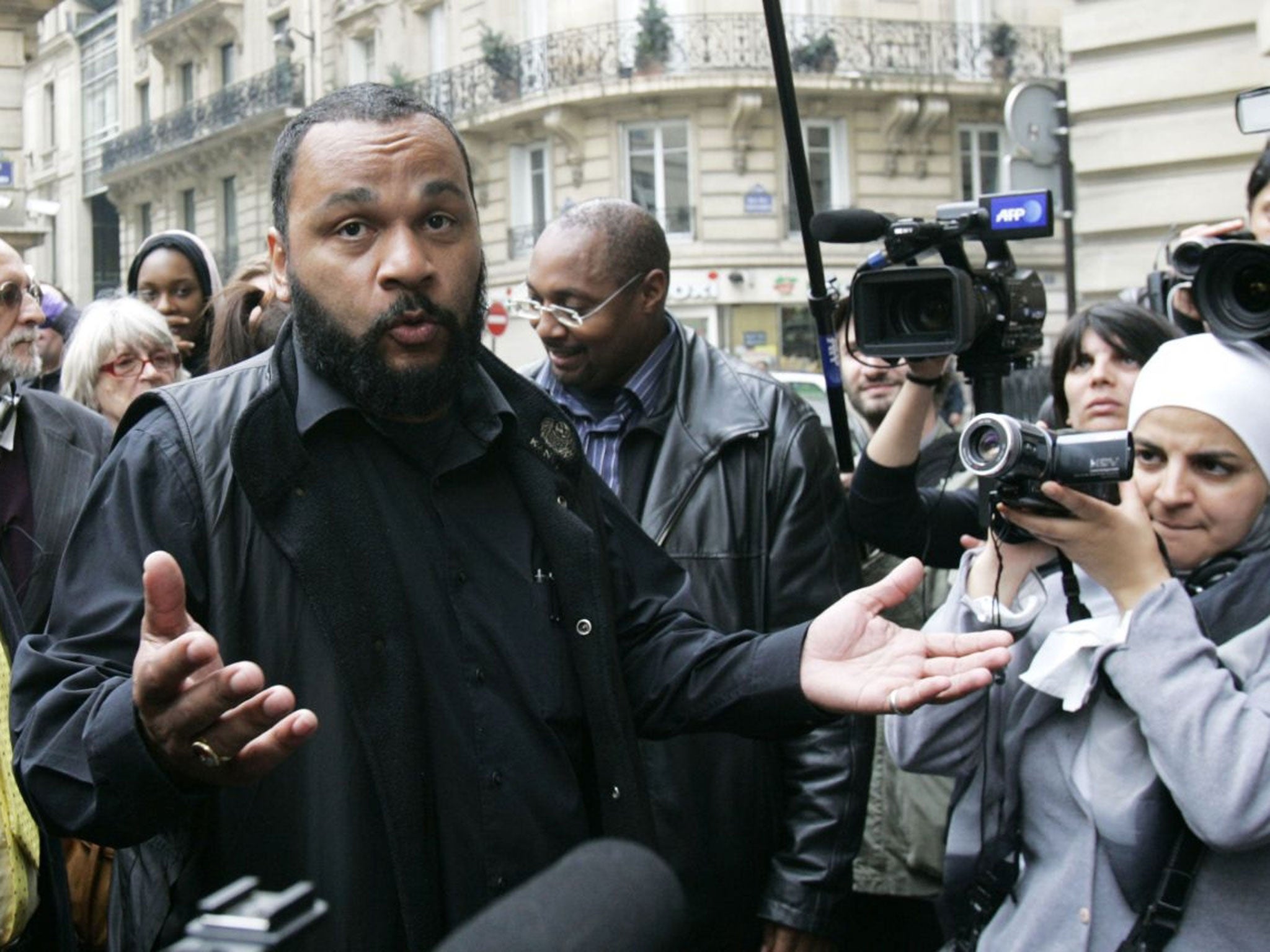'Ban Donald Trump': UK demand grows to use anti-extremism laws to keep out US presidential hopeful
David Cameron leads chorus of condemnation at presidential hopeful’s comments

Donald Trump faced universal anger and ridicule after he called for Muslims to be banned from the United States – and claimed that parts of London were “so radicalised” that police were “afraid for their own lives”.
Furious MPs and Muslim groups argued in response that anti-extremist legislation should be used to ban the billionaire Republican presidential hopeful from the UK if he attempts to visit Britain.
An online petition on Parliament's website demanding that Mr Trump is banned from the UK had more than 30,000 signatures first thing on Wednesday morning. The Government is obliged to respond to any petition with more than 10,000 signatories.
David Cameron took the unprecedented step of intervening in an American election by issuing a scathing rebuke to the front-runner to gain the Republican nomination for the presidency. The Prime Minister was backed by leaders of all political parties, the candidates to become London mayor, the Metropolitan Police, think-tanks and influential Muslims.
Mr Trump provoked international outrage after saying that there should be “a total and complete shutdown” of Muslims entering the US following last week’s terrorist attack on a Californian social service centre in which 14 people died. He sought to justify his comments by claiming that police were frightened to venture into parts of the British and French capitals because of Islamic extremism.
“They have sections in Paris which are radicalised where they police refuse to go there because they’re petrified. We have places in London and other places that are so radicalised the police are afraid for their own lives,” he said.

Mr Cameron’s official spokeswoman declined to say whether his comments might lead to him being barred from the UK. But she said: “The Prime Minister completely disagrees with the comments made by Donald Trump, which are divisive, unhelpful and quite simply wrong.”
Jeremy Corbyn, the Labour leader, denounced the remarks as “an attack on democratic values” and an “affront to common humanity”.
The Scottish First Minister, Nicola Sturgeon, said: “Donald Trump’s comments are obnoxious and offensive, and have rightly been condemned by people across the political spectrum.”
Tim Farron, the Liberal Democrat leader, said: “For someone trying to be president of America it frankly shows why he is utterly unsuited for the role.”
Calls were growing for legislation designed to ban radical preachers from the UK to be applied to Mr Trump if he attempted to fly to Britain.
The Muslim Council of Britain said: “We have been told that those who espouse hatred have no place in the UK. We expect the same rules to apply to [Mr Trump] if he tries to enter the UK.”
Sunder Katwala, the director of the British Future think-tank, said: “Until Trump retracts these highly prejudiced comments, there is a good case for making clear he would be refused entry to the UK by the Home Secretary.”

And the Tory MP Sarah Wollaston said: “If he doesn’t retract the comments, then it is reasonable to question whether there are grounds to ban him from the UK.”
In a rare intervention into politics, the Metropolitan Police rejected his comments about London’s security. A spokeswoman said: “Mr Trump could not be more wrong. Any candidate for the presidential election in the United States of America is welcome to receive a briefing from the Met Police on the reality of policing London.”
Boris Johnson, the London Mayor, mocked the tycoon, remarking: “The only reason I wouldn’t go to some parts of New York is the real risk of meeting Donald Trump.” He said: “Donald Trump’s ill-informed comments are complete and utter nonsense.”

The Conservative MEP for London, Syed Kamall, invited Mr Trump to stay as a “house guest” with him to get to know London, but said he did not expect a return invitation as he would be barred from the US if Mr Trump became president.
As public disgust at the US presidential hopeful’s comments grew in Scotland, an Aberdeen university that once awarded him an honorary degree said it was “considering” whether to revoke it. By 5pm more than 7,500 people had signed a petition calling on Robert Gordon University to strip Mr Trump of the award.
Mr Trump defended his call for a ban on Muslim visitors to the US, but clarified he would keep the border open to American Muslims returning from trips.
He insisted in television interviews that the US was “at war” and likened his plan to steps taken by President Franklin D Roosevelt in the Second World War. “We have no choice but to do this. We have people that want to blow up our buildings, our cities,” he told ABC News.
Most legal experts said his plan would violate the constitution and international law.
Nihad Awad, executive director of the Council of American-Islamic Relations, said: “Donald Trump sounds more like the leader of a lynch mob than of a great nation like ours.”
Banned: Roll call of extremists
Dieudonné M’bala M’bala
The French comedian was banned from entering the United Kingdom for inciting racial hatred and making anti-Semitic comments. He came to prominence in the UK after a footballer celebrated a goal with the comedian’s trademark “quenelle” gesture, which has been likened to a Nazi salute. “I have been treated as public enemy No 1, when all I try to do is make people laugh.”

Michael Savage
A right-wing US shock jock, he was on a list of 16 people banned from entering the UK revealed by then Home Secretary Jacqui Smith in 2009. He called the Koran a book of hate, and has suggested that some Muslims were in need of deportation. “You know, when I see a woman walking around with a burka, I see a Nazi.”
Geert Wilders
The Dutch far-right leader was banned from travelling to Britain in 2009 because his views “threatened community harmony” after he criticised the Koran as a fascist book. He returned to the country later in the year when he declared: “Islam is not a religion, it’s the ideology of a retarded culture”
Terry Jones
The US pastor behind a Koran-burning protest in 2010 was told he was not welcome in Britain as the Home Office “opposes extremism in all its forms”.
Join our commenting forum
Join thought-provoking conversations, follow other Independent readers and see their replies
Comments
Bookmark popover
Removed from bookmarks